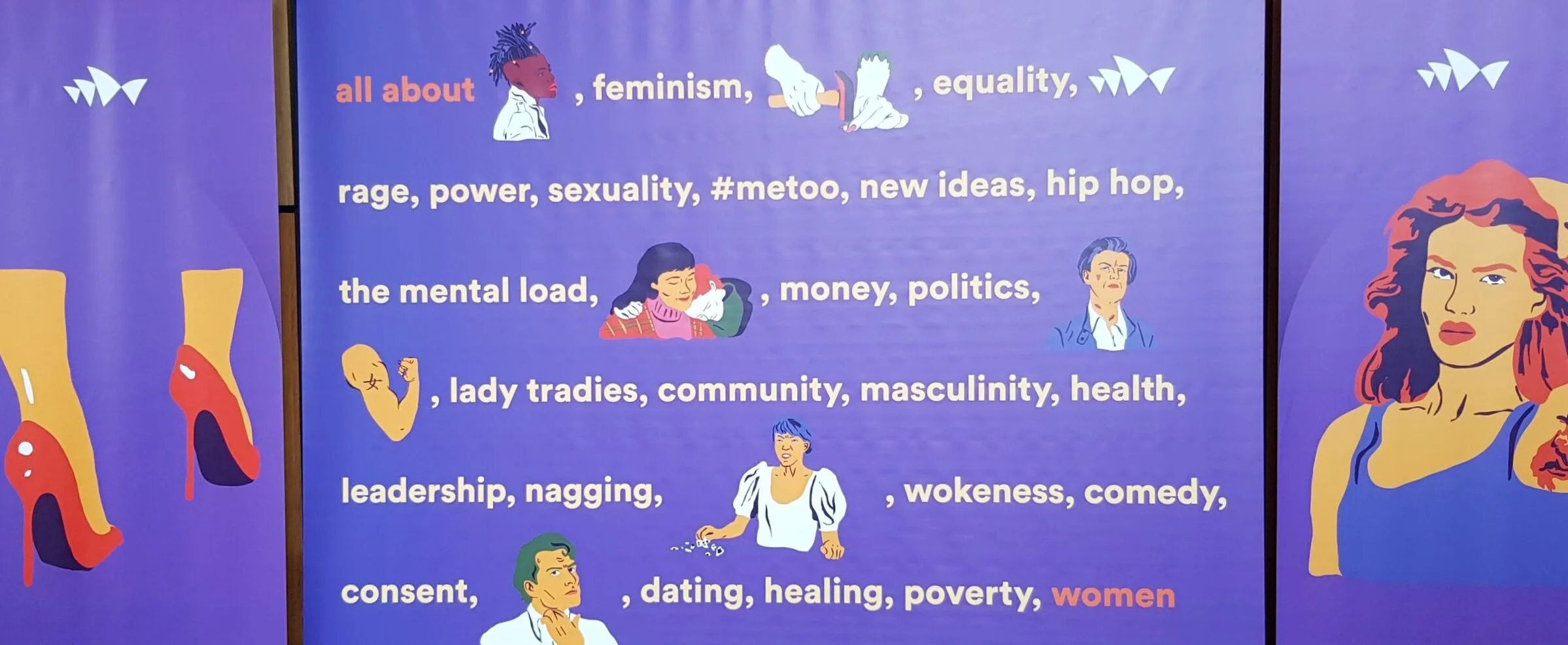By Ella McKelvey, National Director of Online Engagement (Blog)
On 10th March 2019, the Sydney Opera House hosted its “all about women day” –offering up an array of panels, podcasts, workshops “designed to make you think and push your boundaries… a day that asks questions about gender, justice and equality”, as the website claimed.
I was lucky enough to be offered the opportunity to represent OWP at one of the day’s highlight events - leading while female. Hosted in the illustrious Concert Hall of the Opera House, leading while female consisted of an hour-long panel interview with four eminent female politicians - Linda Burney, Julia Banks, Sarah Hanson-Young, and Julie Bishop – followed by 15 minutes of audience questions. Host Jacqueline Maley began the event with a synopsis of women’s affairs over the past year of politics: “the last year has not been a good one for women in the Australian parliament”, she summarised.
During the ensuing discussion, the panellists described the challenges they faced working in a government perfused by the patriarchy. They spoke out against the practical hurdles facing female politicians (e.g. the requirement that politicians be physically present to cast votes in Canberra is especially challenging for those with childcare responsibilities), and also parliamentary culture - what Hanson-Young described as the expectation that “bullying and a sort of rough-and-tumble nature is part of politics…”:
“…We come off the worst as women because there is a very specific gendered nature to it, let me be clear about that. There is a very specific gendered nature to the bullying and the combat you get as a woman in politics. And that needs to be called out. It’s not just that we’re not tough enough”.
However, whilst the four politicians found a basic level of common ground in their frustrations with the government; it soon became clear that some issues were not shared across party lines. In particular, Banks had a number of grievances to air following her three years in the Liberal Party, which she officially left in November 2018…“my first entry into the Liberal Party room, I felt that it was like…the Liberal Party had stopped in time. In my three years, I felt like it was some sort of hybrid TV show between Mad Men and House of Cards.”
Foyer Photo-Op at Sydney Opera House’s All About Women Day
Contrastingly, as a member of the Labor Party, Burney was keen to emphasise the progress she had seen over the past 15 years: “I remember…coming down the elevator to the foyer of the NSW parliament to come to a massive picture of Captain Cook landing. But I am pleased to say now, I am leaving that Parliament where Aboriginal and Torres Straight Islander flags are flying in both chambers, and everyday begins with an acknowledgement of country.” She also remarked on how helpful it was that the Labor party “have not only amazing women in leadership positions, but also men in leadership positions that are highly supportive of affirmative action [for reducing gender inequality]”.
Of course, as an active member of the Labor Party, and speaking (presumably) to a largely politically-engaged audience, Burney had an incentive to promote her Party as championing gender and social equality. Nonetheless, Banks’ depiction of a comparatively regressive Liberal Party hardly seemed implausible. Just two days prior to all about women, Party leader and Prime Minister Scott Morrison managed to make global headlines with his statement regarding International Women’s Day: “We’re not about setting Australians against each other, trying to push some down to lift others up.”
Maley hence raised the question – “given its grounding in the traditional family unit, is conservative politics fundamentally opposed to gender equality? “ Bishop responded, “I think it is very misleading for some to try and impose on the Liberal party that we are a religious, moral conservative party. We’re political conservatives, we are political liberals, and we make up the broad church. Now, as Menzes [Liberal Party founder] said, we are progressive, so you look at the traditional family unit today and it should be about equality of sharing responsibility and caring responsibilities. It can be single mums, it can be two men raising children – the traditional family unit has moved on. As long as… we hold dear the institutions and traditions and values…”
Unfortunately, by focusing on the “family unit”, Maley failed to draw attention to other aspects of right-wing politics that are less conducive to gender equality. To put it crudely, conservative governments are less inclined to make economic and legislative provisions for marginalised groups including women. The Liberal Party’s silence on the issue of on unpaid women’s work, for example, could have been an interesting discussion topic.
Bishop’s answer was just one component of a convincing performance as a champion of gender equality – she promoted her NGO work, and deployed a number of well-crafted soundbites…
… received a particularly loud applause.
However, throughout the event Bishop stayed on brand with her characteristically contrary gender politics. Notably, she skirted around answering the question: “When [Julia Gillard] gave her famous misogyny speech against Tony Abbott…you stood up and defended him…Have you changed your views about Tony Abbott since?”. Bishop replied, “I as the deputy, of course, had a role to defend the leader, which I did.”
Leading while female advertised itself as a discussion – and that was precisely what it delivered– seventy-five minutes of story-sharing and comparison. Whilst it might not have uncovered especially radical; the discussion was still thought-provoking. Most interesting, from my perspective, were the fractures in the discourse – the moments of tension between panellists, stilted answers, and subtle digs. I wish there had been more time for Maley to probe the Party differences; to invite more debate about how well-suited different political ideologies are to the pursuit of gender equality. leading while female was a great start – but women in politics should not.


